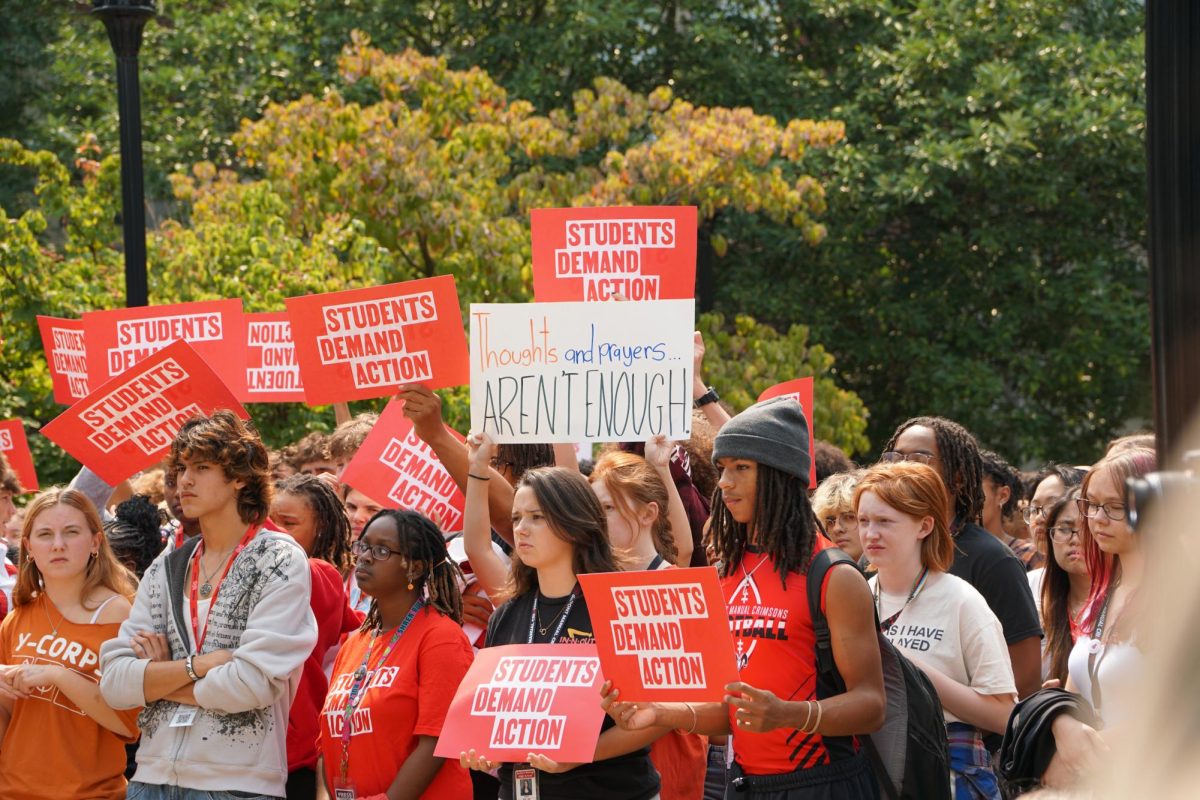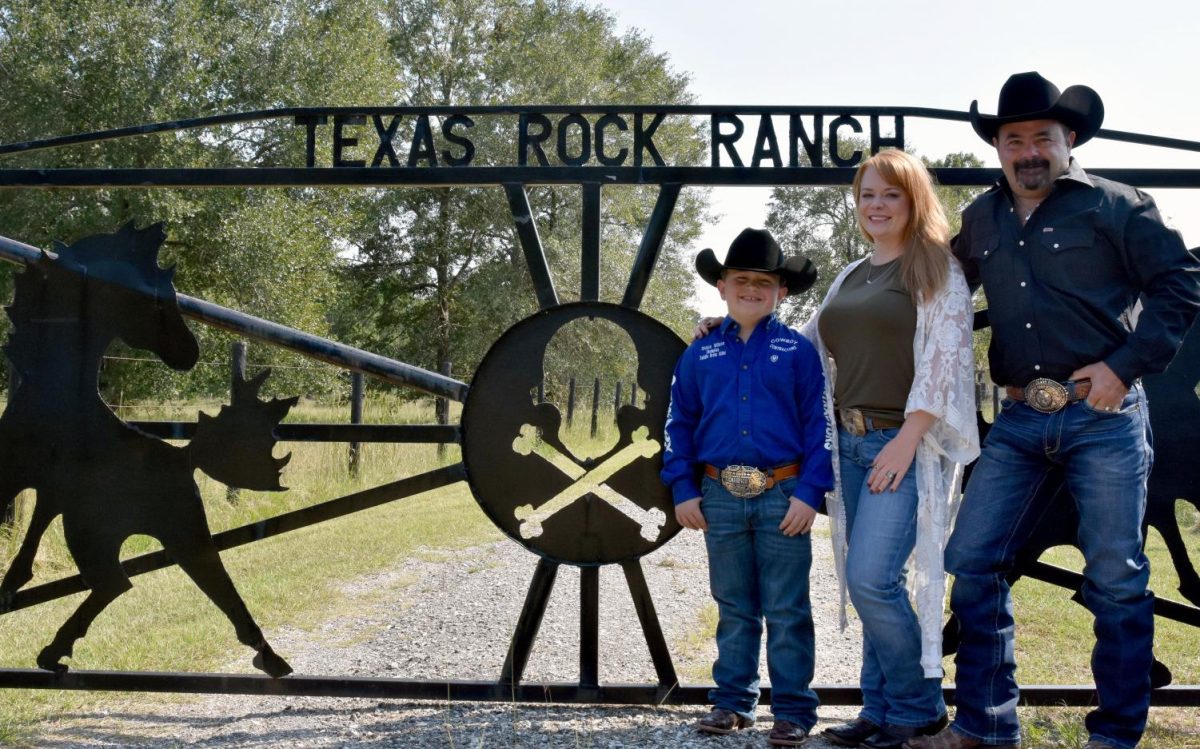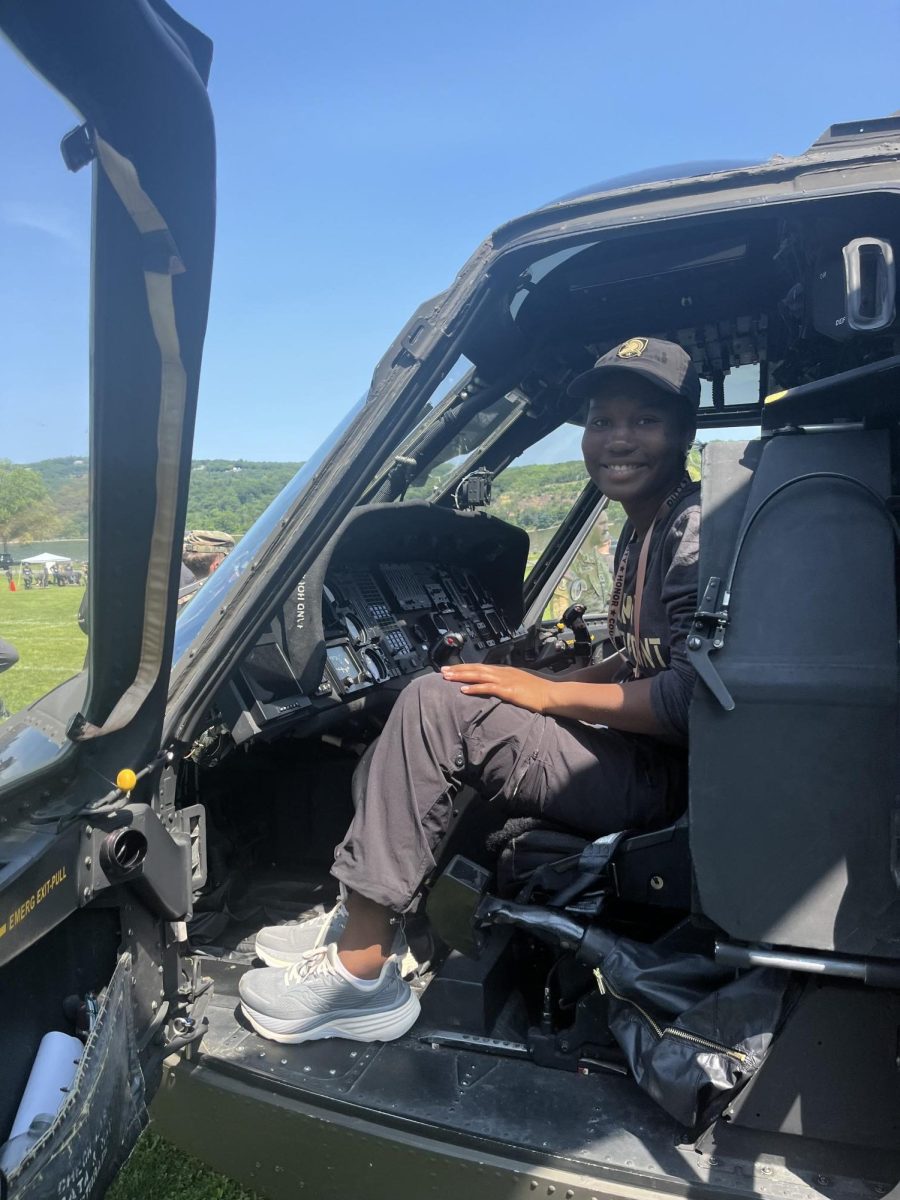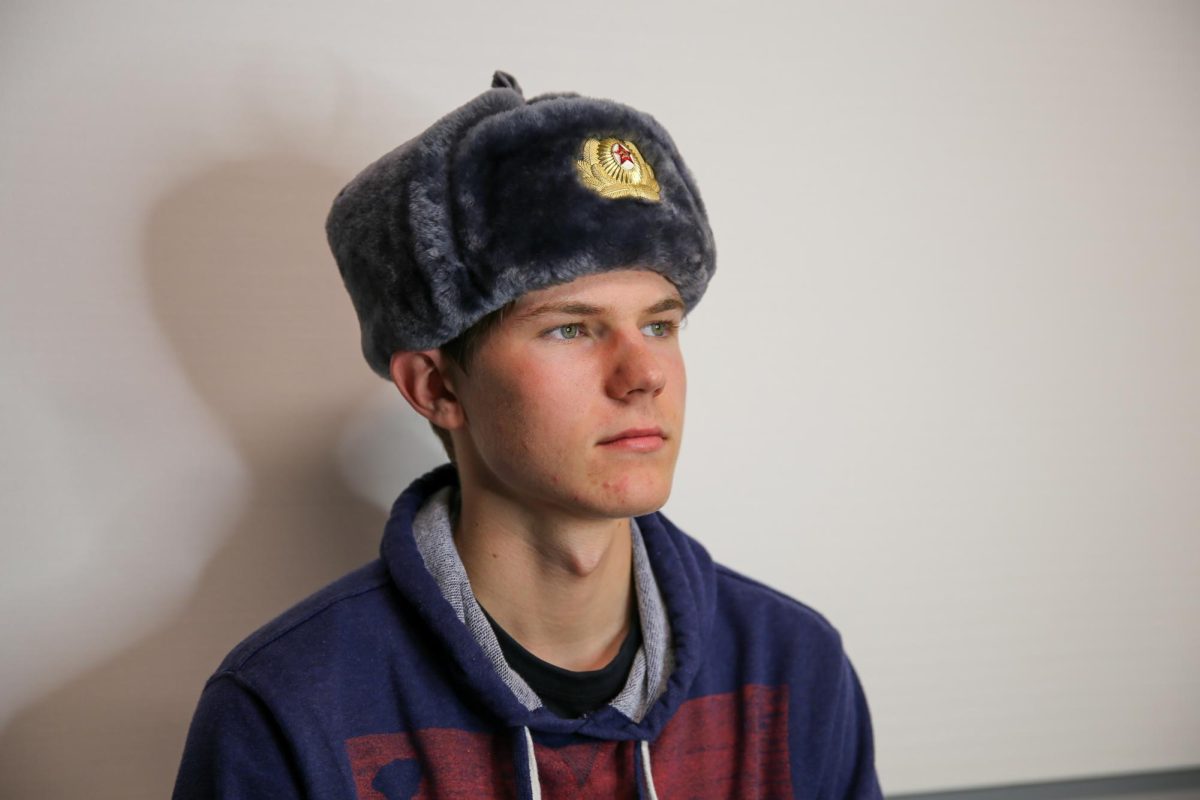Born in the Soviet Union amid an economy devastated by World War II, sophomore Maxim Gutnik’s father, Gene Gutnik, recalls standing in a line for food outside in the freezing temperatures of a harsh Russian winter. He was 12 and stood in line for over an hour, just hoping for a piece of bread.
“In my family history, as far as I remember, we had to go through a lot of hard times,” Gene said. “‘A lot of hard times’ is not an exaggeration: both my grandfathers had to leave to fight in World War II, and while it seems like a huge historical event in the history books, to give you a perspective, the casualties in the Soviet Union were one in every 7 people. Every family had a loss. That’s the scale of how tragic it was specifically for the Russian people.”
In the late 1990s, Gene and his wife had Maxim’s older brother, Dima Gutnik. At the time, although both he and his wife were already balancing work as software engineers with college, they didn’t have enough money to support their family. Thus, Gene took up a third and fourth job at night unloading trucks. Whether it was the harsh winter conditions or the fact that it was late at night, Gene’s facial nerve became inflamed, causing some of his face to be paralyzed. Reflecting on being in his early 20s and having to hear a doctor say that a return to normal was uncertain, Gene considers the situation one that demonstrates how far he and other Russian parents were willing to sacrifice themselves to ensure that their family had what they needed.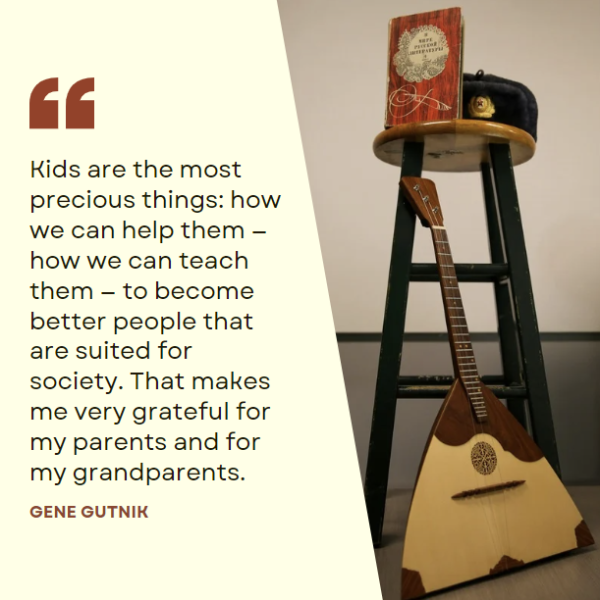
“My grandparents, my parents, my generation,” Gene said. “We all were going through a very hard time, but at the same time, we try not to lose family members because, again, kids are the most precious things: how we can help them — how we can teach them — to become better people that are suited for society. That makes me very grateful for my parents and for my grandparents.”
Despite the hardships, Dima has mostly fond memories of his time in Russia. Although he struggles to remember specific moments from the earlier years of his childhood, the farm that he grew up on stands out to him the most. Dima recalls memories of growing up in a “dacha,” a type of small ranch. According to Dima, many families had a house in the city for going to work, while also having a place in the countryside.
“I just remember my parents always taking me there when I was little, and I remember the chickens roaming around the yard and the cat climbing on the fence posts,” Dima said. “There’s always geese if you go far back into the farm. They were always hyper-aggressive, and I would always get scared of them as a little kid. There was this swampy lake that had frogs jumping around. I was not a good kid — I would take my BB gun and shoot them — but [the farm] was very peaceful.”
When Dima was about 5 years old, Gene and his family moved to the U.S. For Gene, one important reason for the move was the bad economic conditions in Russia following the collapse of the Soviet Union. However, he was also attracted by the U.S.’ job opportunities in computer engineering.
“Right now computers are everywhere, but I got fascinated with computers when it was not common,” Gene said. “It was very rare. I think it was 1986 or 1987. I read a lot of books, different books — Russian books, American books — and Silicon Valley seemed very interesting to me. It was the place to be if you want to be a software engineer, to work with computers. So deep inside, I really wanted to go there to see for myself.”
With Russian being his first language, Dima remembers entering kindergarten and only speaking Russian while the students around him spoke English. As such, Gene feels that Maxim’s experience of going to school was slightly smoother than Dima’s, who had to join an English as a second language program when he was small. However, despite their efforts to adapt to a new environment, the Gutniks also maintained a strong connection with their cultural roots.
Dima mentions that the traditional folktale stories he grew up with such as Alyosha Popovich i Tugarin Zmey, Dobrinya and the Dragon and Ilya Muromets i Solovey Razboynik had a particular influence on him. For him, these stories acted as a source of inspiration, and he believes that they have made him more courageous as a person.
Furthermore, Dima adds that his family continues to hold traditional values and customs. Actions such as making sure to take off their shoes and hats when entering a building, or always bringing gifts when going over to somebody’s house, originate from the family’s Russian heritage. In particular, Dima notes a unique tradition where they are not supposed to gift people items that may be considered weapons.
“My dad really likes to collect knives and he’s got a bunch of beautiful knives,” Dima said. “You know, different steels and different American manufacturers and stuff and they’re amazing. I can’t gift knives to him, but there’s kind of this subtle loophole where I can give it to him and he can give me back a dollar, and it’s as though he bought it from me.”
Although Gene recognizes that it wasn’t a smooth experience integrating into American culture, Gene appreciates the uniqueness of the U.S. being a country built upon immigrants of diverse cultures. He says that many of the people he met were very tolerant and accepting of people for who they are instead of basing them on stereotypes.
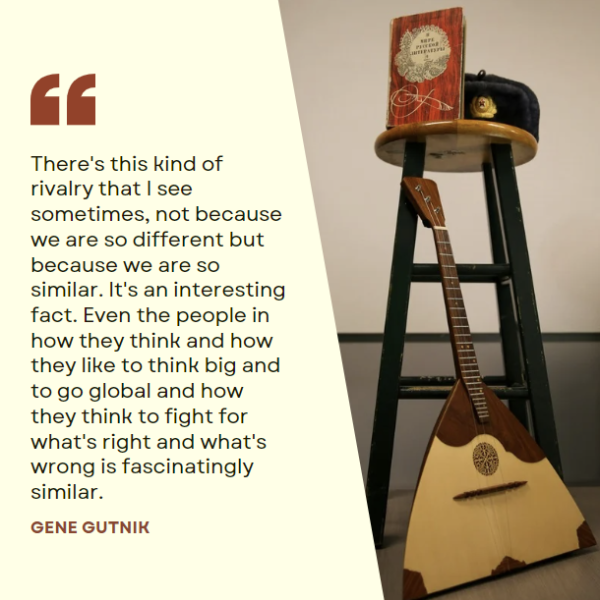
“Being part of the two cultures in both the U.S. and Russia, I find it interesting that people are very, very similar,” Gene said. “Because both of them are very big countries, and both of them are very multicultural. And there’s this kind of rivalry that I see sometimes, not because we are so different but because we are so similar. It’s an interesting fact. Even the people in how they think and how they like to think big and to go global and how they think to fight for what’s right and what’s wrong is fascinatingly similar.”
Gene incorporates parts of American culture with Russian culture, such as by celebrating Christmas with the Russian “New Year” holiday. Whereas Christmas is a classic American holiday of Christian origin, Gene leads his family in putting a Russian New Year spin on it, which he explains is an all-inclusive holiday created with the intent of bringing together the diverse Russian people without a need for being devout to any specific religion.
“We do celebrate New Year a little bit more than Christmas, and that’s why Maxim is a lucky kid because sometimes we just give two presents,” Gene said. “So you want to be part of the current culture, but you also want to celebrate the New Year, and I think that’s a very nice concept because what if your friends from a different culture or different religious group do not celebrate Christmas or do not have roots with Christianity? Well, New Year is completely apolitical or areligious: it’s just a holiday.”
Gene sees Dima and Maxim’s heritage as an important part of their upbringing, including teaching them the history of their family’s ancestry. Maxim grew up learning of the exploits of his grandparents, great-grandparents and his family origins in Russia. According to Maxim, his family most likely came from people who escaped Russia’s system of serfdom to join the Cossacks — a military class.
Gene adds that their family most likely originated from the Kuban and Terek Cossack groups. He recalls a story about his great-grandfather who was convinced to move from a more rural area in the south to the larger cities, where his grandfather was born. His grandfather ended up becoming a professor in physics and electronics. The grandfather on the other side of his family participated as a colonel in World War II on the Soviet Union’s eastern border, and was later stationed in Korea. Gene’s parents, or Maxim’s grandparents, would also go on to join the military.
“My grandfather and my grandmother originally lived in a southern city called Taganrog, which was on the coast of the Black Sea, but then they moved north to a town close to a city called Murom and it was a different sort of lifestyle,” Maxim said. “It was sort of like a military camp. It wasn’t well developed, so my dad would tell me stories of how he had to crawl through 10 feet of snow every day to school, how he was constantly cold and how military trucks would bring food and supplies to people there.”
Maxim’s family continues to hold on to family heirlooms passed down from the generations before them. In particular, Gene treasures three objects Maxim’s great-grandfather left behind related to his time as an officer in the Russian military.
“One is his medal which he was awarded during World War II, which was pretty significant,” Gene said. “The second one, if you go back into Russian history, military officers are supposed to carry a sword which is cool, but it’s very impractical, right? And then the Russian military said, ‘Well, how about we make a mini sword? It’s like a dagger, right?’ And that way we can keep the tradition of a sword restricted to a high-level officer but at the same time make it more convenient. So that’s what he gave to us, a sword which is like a smaller dagger that is part of the military uniform for high-ranked officers.”
The third object is a military handbook, containing the history of different battles and other military tactics. Written entirely in Russian, the book represents a slice of history from Maxim’s family, which he read with the help of his father. Maxim adds that he has a Soviet military hat from his grandfather, and his grandparents still hold on to traditional Cossack swords and headwear.
Seeing Maxim’s interest in Russian history grow brings Gene pride as he recounts a famous quote by Winston Churchill: “A nation that forgets its past has no future.” He encourages every individual — no matter their heritage — to look upon their ancestry and ask themselves to be as good, if not better, than the generations before.
In recounting his experiences as a Russian immigrant in America, Gene highlights that despite differing cultures and experiences between nations, people themselves are not that different. He pushes people to value other cultures and not only learn about one side of history. Gene states that humans have the potential to achieve a lot more technological progress but are held back by constant conflict.
“With all humankind working together and not fighting each other, we can achieve so much more,” Gene said. “I think that’s extremely important for us as humans thinking about the long term because many resources that we are using are not easily replenishable. This is our chance to go outside of our planet and find something new. I would really like to see the future where people from Russia, the U.S., China, India, Africa, get to work together and not try to do business at the cost of someone else.”
This story was originally published on El Estoque on May 29, 2024.


